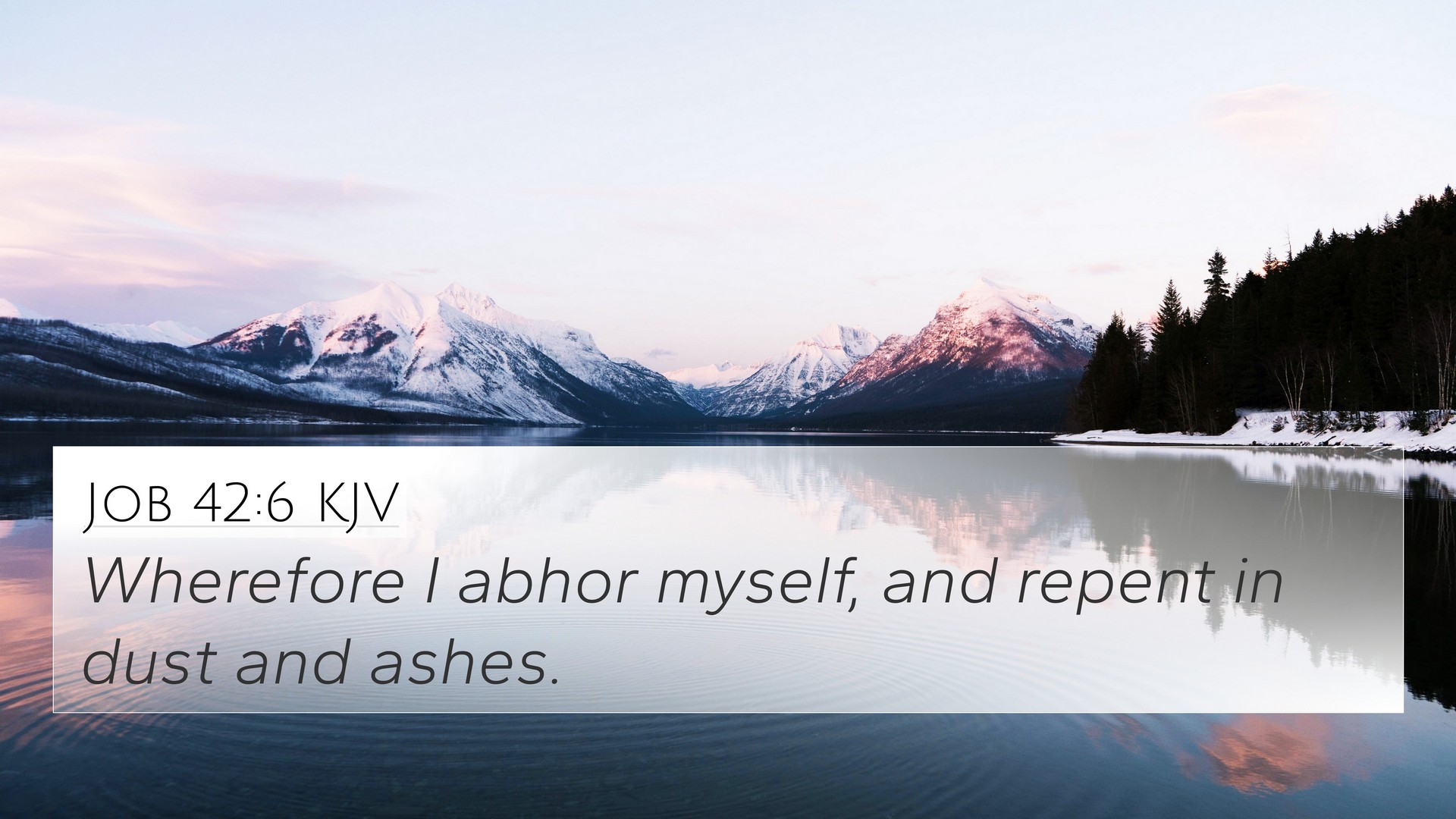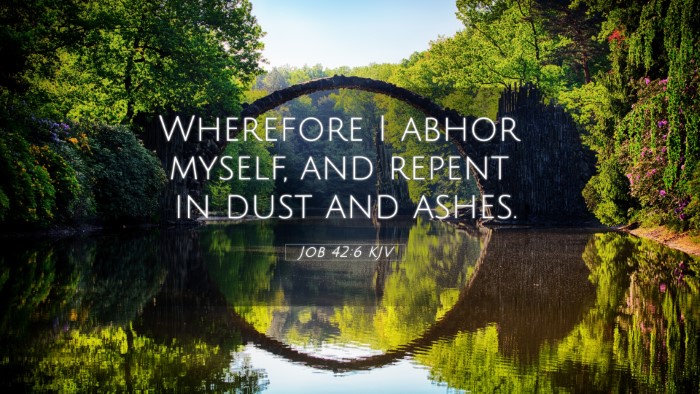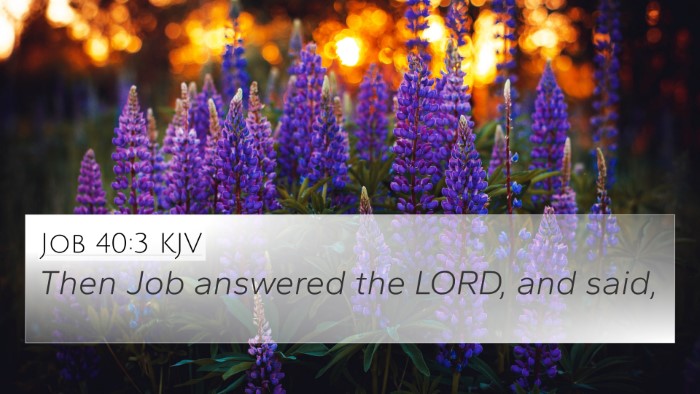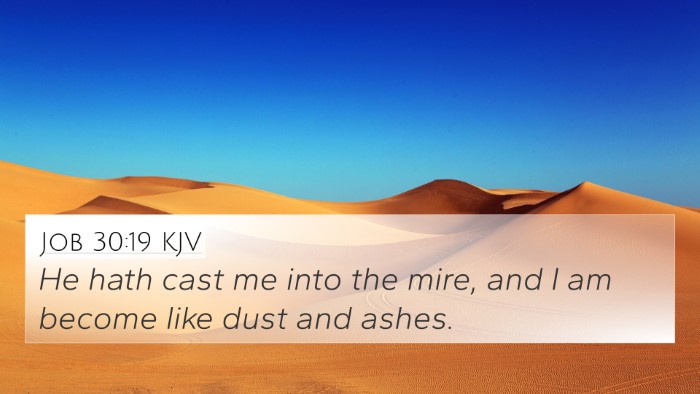Old Testament
Genesis Exodus Leviticus Numbers Deuteronomy Joshua Judges Ruth 1 Samuel 2 Samuel 1 Kings 2 Kings 1 Chronicles 2 Chronicles Ezra Nehemiah Esther Job Psalms Proverbs Ecclesiastes Song of Solomon Isaiah Jeremiah Lamentations Ezekiel Daniel Hosea Joel Amos Obadiah Jonah Micah Nahum Habakkuk Zephaniah Haggai Zechariah MalachiJob 42:6 Similar Verses
Job 42:6 Cross References
Wherefore I abhor myself, and repent in dust and ashes.
Uncover the Rich Themes and Topics of This Bible Verse
Listed below are the Bible themes associated with Job 42:6. We invite you to explore each theme to gain deeper insights into the Scriptures.
Job 42:6 Cross Reference Verses
This section features a detailed cross-reference designed to enrich your understanding of the Scriptures. Below, you will find carefully selected verses that echo the themes and teachings related to Job 42:6 KJV. Click on any image to explore detailed analyses of related Bible verses and uncover deeper theological insights.
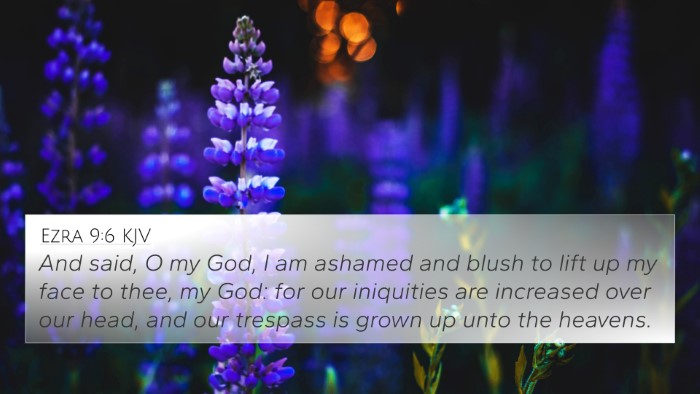
Ezra 9:6 (KJV) »
And said, O my God, I am ashamed and blush to lift up my face to thee, my God: for our iniquities are increased over our head, and our trespass is grown up unto the heavens.
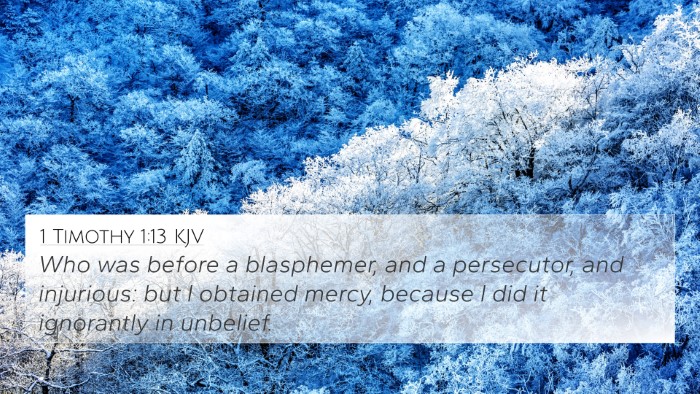
1 Timothy 1:13 (KJV) »
Who was before a blasphemer, and a persecutor, and injurious: but I obtained mercy, because I did it ignorantly in unbelief.
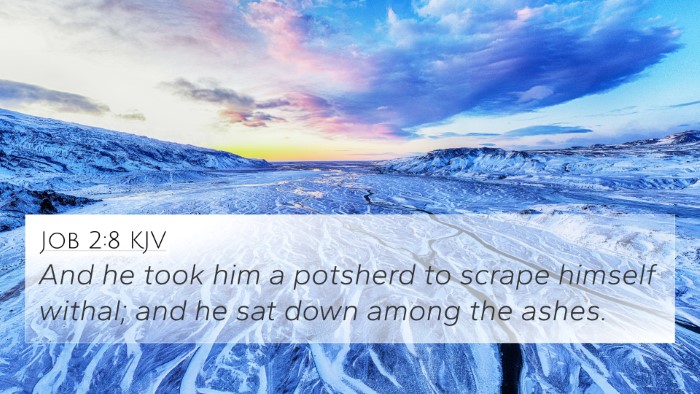
Job 2:8 (KJV) »
And he took him a potsherd to scrape himself withal; and he sat down among the ashes.
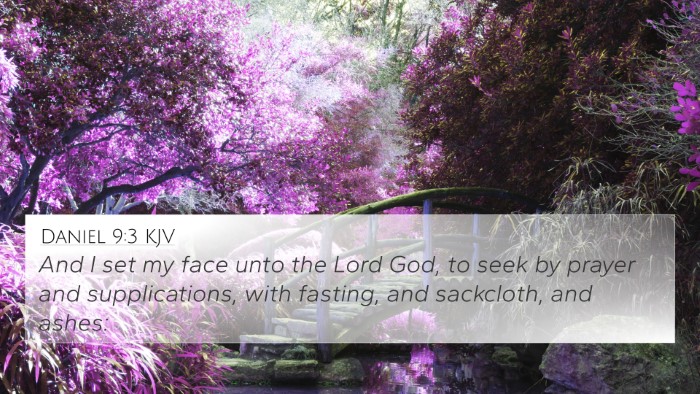
Daniel 9:3 (KJV) »
And I set my face unto the Lord God, to seek by prayer and supplications, with fasting, and sackcloth, and ashes:
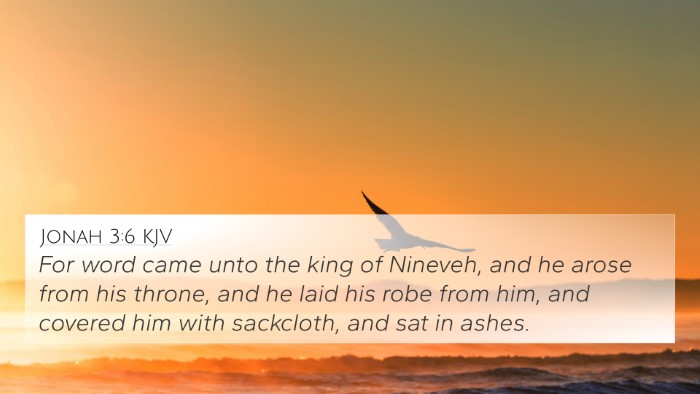
Jonah 3:6 (KJV) »
For word came unto the king of Nineveh, and he arose from his throne, and he laid his robe from him, and covered him with sackcloth, and sat in ashes.
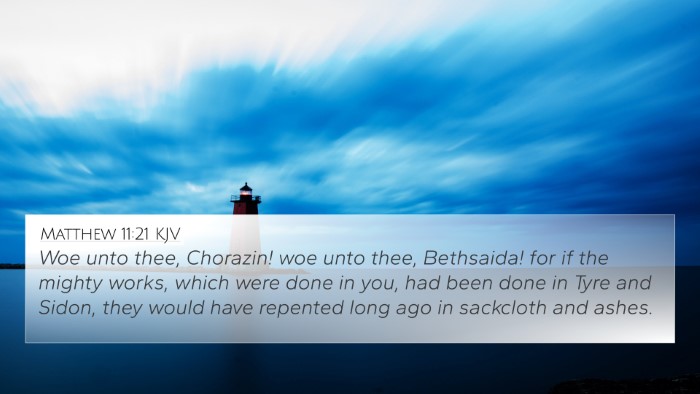
Matthew 11:21 (KJV) »
Woe unto thee, Chorazin! woe unto thee, Bethsaida! for if the mighty works, which were done in you, had been done in Tyre and Sidon, they would have repented long ago in sackcloth and ashes.
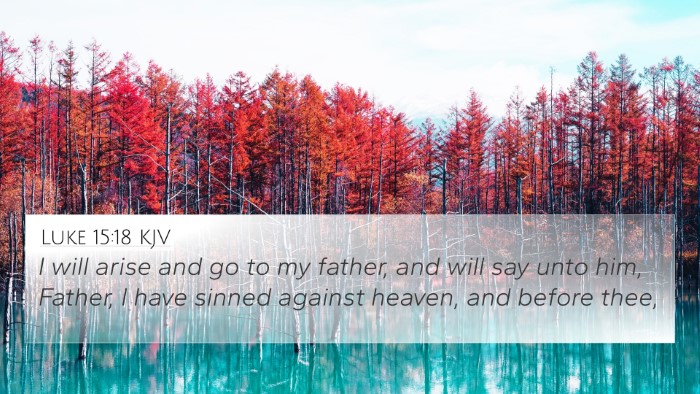
Luke 15:18 (KJV) »
I will arise and go to my father, and will say unto him, Father, I have sinned against heaven, and before thee,
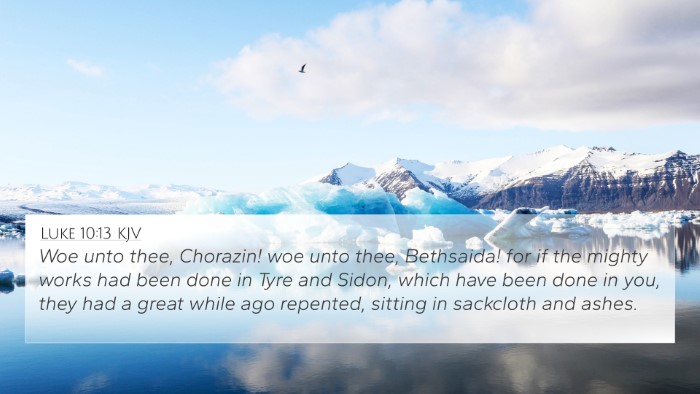
Luke 10:13 (KJV) »
Woe unto thee, Chorazin! woe unto thee, Bethsaida! for if the mighty works had been done in Tyre and Sidon, which have been done in you, they had a great while ago repented, sitting in sackcloth and ashes.
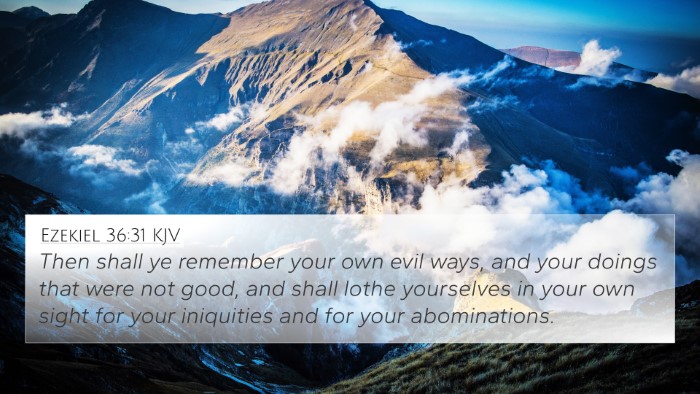
Ezekiel 36:31 (KJV) »
Then shall ye remember your own evil ways, and your doings that were not good, and shall lothe yourselves in your own sight for your iniquities and for your abominations.
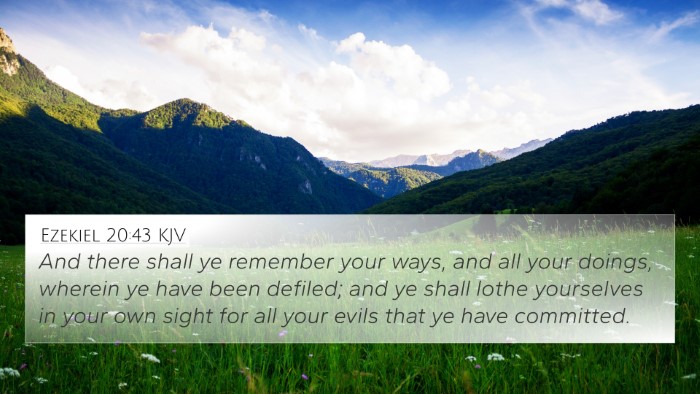
Ezekiel 20:43 (KJV) »
And there shall ye remember your ways, and all your doings, wherein ye have been defiled; and ye shall lothe yourselves in your own sight for all your evils that ye have committed.
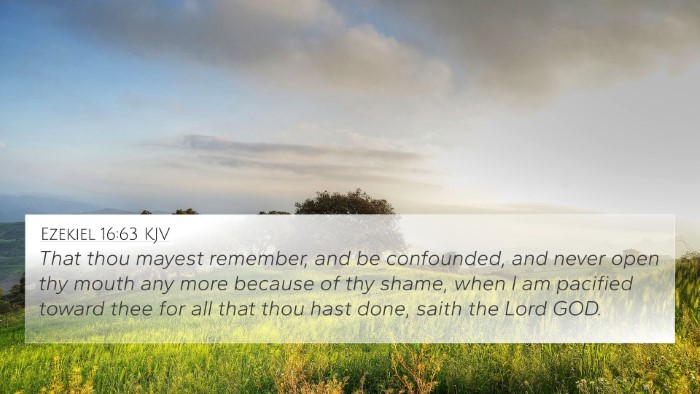
Ezekiel 16:63 (KJV) »
That thou mayest remember, and be confounded, and never open thy mouth any more because of thy shame, when I am pacified toward thee for all that thou hast done, saith the Lord GOD.
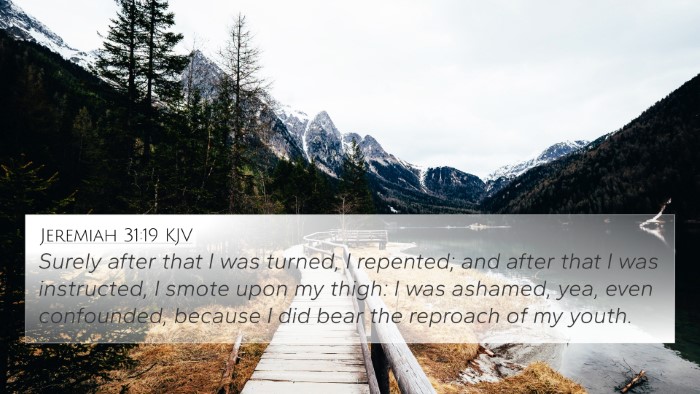
Jeremiah 31:19 (KJV) »
Surely after that I was turned, I repented; and after that I was instructed, I smote upon my thigh: I was ashamed, yea, even confounded, because I did bear the reproach of my youth.

Isaiah 5:5 (KJV) »
And now go to; I will tell you what I will do to my vineyard: I will take away the hedge thereof, and it shall be eaten up; and break down the wall thereof, and it shall be trodden down:
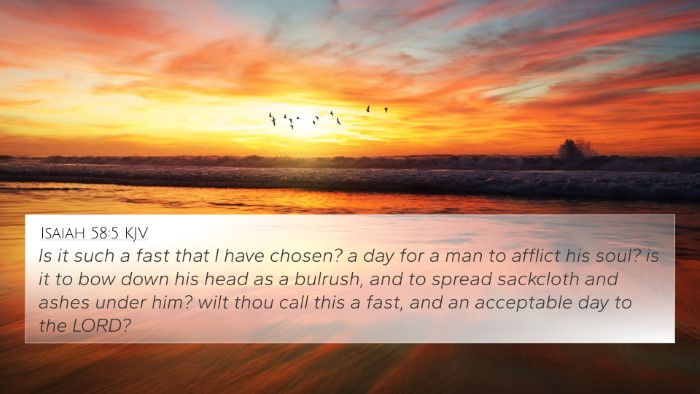
Isaiah 58:5 (KJV) »
Is it such a fast that I have chosen? a day for a man to afflict his soul? is it to bow down his head as a bulrush, and to spread sackcloth and ashes under him? wilt thou call this a fast, and an acceptable day to the LORD?
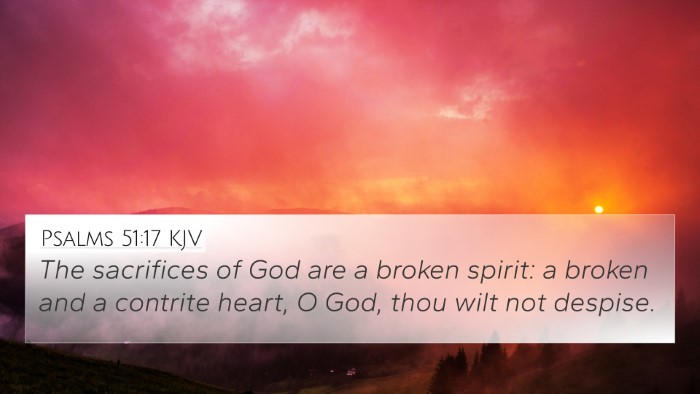
Psalms 51:17 (KJV) »
The sacrifices of God are a broken spirit: a broken and a contrite heart, O God, thou wilt not despise.
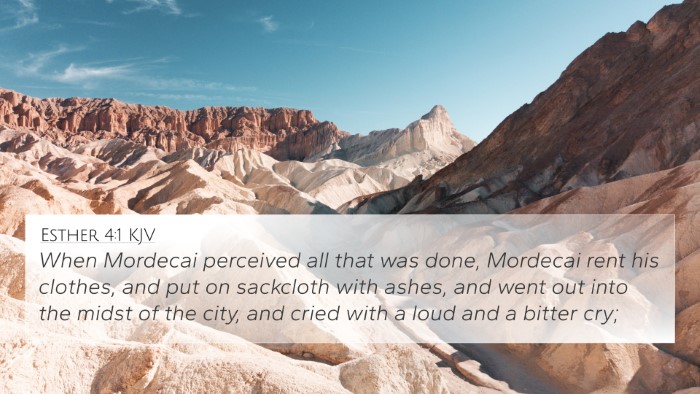
Esther 4:1 (KJV) »
When Mordecai perceived all that was done, Mordecai rent his clothes, and put on sackcloth with ashes, and went out into the midst of the city, and cried with a loud and a bitter cry;

1 Kings 21:27 (KJV) »
And it came to pass, when Ahab heard those words, that he rent his clothes, and put sackcloth upon his flesh, and fasted, and lay in sackcloth, and went softly.
Job 42:6 Verse Analysis and Similar Verses
Understanding Job 42:6
Job 42:6 states, "Wherefore I abhor myself, and repent in dust and ashes." This verse concludes the narrative of Job's intense suffering and ultimate restoration. In this moment of profound realization, Job acknowledges his limitations and humanity before God.
Verse Meaning and Context
In the context of the Book of Job, this verse highlights Job's epiphany and repentance after a series of dialogues with his friends and, ultimately, with God Himself. Job's previous insistence on his righteousness gave way to a deep understanding of God's majesty and his own frailty.
Insights from Commentaries
-
Matthew Henry:
Henry emphasizes the power of God’s response to Job throughout the whirlwind, presenting questions that highlight God's omnipotence and Job’s humanity. Job’s repentance signifies an acceptance of his role within God's creation.
-
Albert Barnes:
Barnes explains that Job's abomination of self showcases the recognition of sin and unworthiness. This acknowledgment leads to true repentance, distinguishing it from mere regret.
-
Adam Clarke:
Clarke notes that Job's ashes symbolize humility and the depth of his sorrow. His repentance signifies not just a plea for forgiveness but an understanding of God's holiness and justice.
Cross-References
To deepen the understanding of Job 42:6, we can explore various Bible verse cross-references that resonate with its themes:
- Psalm 51:17: "The sacrifices of God are a broken spirit; a broken and contrite heart, O God, you will not despise." – Illustrates the importance of humility and true repentance.
- Isaiah 6:5: "Woe is me! For I am undone; because I am a man of unclean lips." – Reflects the acknowledgment of unworthiness before God, akin to Job’s expression.
- Romans 7:24: "O wretched man that I am! who shall deliver me from the body of this death?" – Paul expresses a similar sense of despair and the need for redemption.
- Luke 18:13: "And the publican, standing afar off, would not lift up so much as his eyes unto heaven, but smote upon his breast, saying, God be merciful to me a sinner." – Parallels Job's humility and plea for mercy.
- James 4:10: "Humble yourselves in the sight of the Lord, and he shall lift you up." – Emphasizes the value of humility before God.
- Jeremiah 3:13: "Only acknowledge your guilt—that you rebelled against the Lord your God, and committed adultery against the Lord your God." – The call to acknowledgment aligns with Job’s realization of his own fallibility.
- Philippians 2:10-11: "That at the name of Jesus every knee should bow..." – Highlights the necessity of recognizing God’s lordship, similar to Job’s experience.
- 2 Corinthians 5:10: "For we must all appear before the judgment seat of Christ..." – The recognition of accountability before God ties back to Job's self-examination.
- 1 Peter 5:6: "Humble yourselves, therefore, under God’s mighty hand, that he may lift you up in due time." – Again reiterates the importance of humility and surrender.
- Proverbs 28:13: "Whoever conceals their sins does not prosper, but the one who confesses and renounces them finds mercy." – Connects the theme of repentance that Job undergoes.
Thematic Connections
Job’s declaration in 42:6 not only encapsulates themes of repentance and humility but also invites deeper reflection on God's response to human suffering. In studying these verses, one can identify connections between Bible verses that reveal how individuals throughout scripture struggle with their own limits in the light of divine holiness.
SEO Keyword Integration
This verse serves as a focal point in a comparative Bible verse analysis regarding themes of suffering and repentance. By linking Bible scriptures such as Job 42:6 with others, one can utilize tools for Bible cross-referencing to uncover deeper truths. Many believers seek out Bible concordance resources to facilitate their understanding of how different texts interconnect.
Inter-Biblical Dialogue
The reflections found in Job 42:6 open a door to an inter-Biblical dialogue, illustrating how both the Old and New Testaments address human fallibility and the necessity of recognizing God’s sovereignty. Believers can explore how to find cross-references in the Bible that provide a comprehensive view of God's message throughout scripture.
